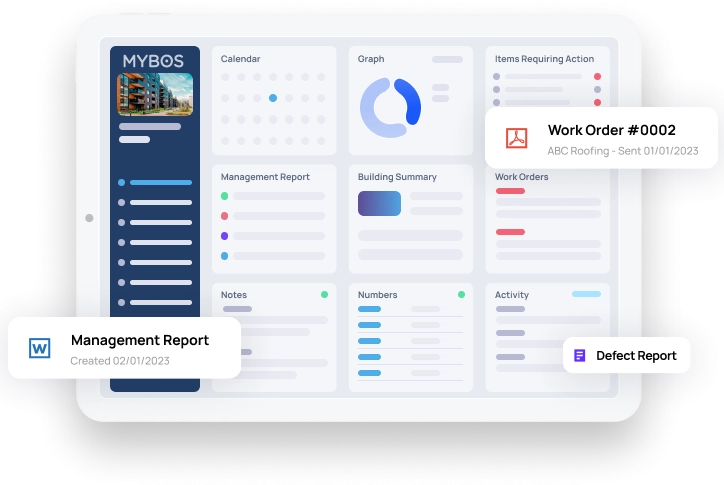
Your Guide to Strata Management vs Body Corporate: Terms, Roles & Regulations Explained
Understanding the distinction between strata management and body corporate (also known as an owners corporation in some states) is essential for anyone living in or investing in strata-titled properties. While these terms are often used interchangeably, they refer to different roles within the structure of property ownership and management in Australia.
In this article, we’ll explain the roles and responsibilities of both the body corporate and the strata manager, highlight the key differences between them, and explore how they fit into the broader framework of strata living.
What Does a Strata Manager Do?
A strata manager (also known as a strata managing agent) is a professional appointed by the body corporate to handle the day-to-day administration of a strata scheme.
If you own a lot (such as an apartment or townhouse), the strata manager is typically your first point of contact for matters relating to common property or building operations.
Importantly, strata managers do not have decision-making authority on their own. They act under the direction of the body corporate committee, executing decisions made on behalf of all owners.
Key responsibilities of a strata manager include:
- Coordinating maintenance and repairs for common property
- Managing finances, budgets, and insurance
- Organising meetings and maintaining records
- Issuing breach notices for by-law violations (a task that building or property managers generally do not handle)
While strata managers play a central role in the ongoing management of a property, they are implementers, not policymakers.
As Sourceable explains, “strata management services provide greater contact with property owners in terms of traditional real estate, body corporate services”.
Strata Roles and Regulations
A strata scheme is managed through a committee elected by the body corporate. This committee may include:
- Chairperson – Leads meetings and ensures proper procedures are followed
- Secretary – Handles communication and record-keeping
- Treasurer – Manages finances and prepares budgets
One person may hold multiple roles depending on the size of the scheme. The committee is responsible for making decisions on behalf of all owners and may engage external professionals—such as a strata manager—to carry them out.
Regulatory can frameworks vary by state, but all strata schemes operate under legislation such as:
What Does a Body Corporate Do?
A body corporate—or owners corporation in some states—is the legal entity made up of all lot owners in a strata scheme. It is automatically created when a property is subdivided and registered under a strata or community title.
The body corporate is responsible for managing shared property and ensuring the scheme complies with relevant laws. Unlike strata managers, the body corporate is not a third-party service—it is the collective group of owners who vote on key decisions.
Key responsibilities of a body corporate include:
- Maintaining and managing common property (e.g. roofs, driveways, stairwells)
- Overseeing the scheme’s financials, including levies and budgets
- Organising building and common property insurance
- Electing a committee and appointing a strata manager (if desired)
Summary: Body Corporate vs Strata Manager
The table below outlines the core differences:
| Body Corporate | Strata Management | |
| Key personnel | Body Corporate = the group of owners. | Strata Manager = the paid expert acting under the direction of the body corporate. |
| Legal status | Legal entity established under state legislation. | Strata management companies or individuals operate as independent contractors or businesses. |
| Main function | The body corporate makes decisions (e.g., passing budgets, approving works) via meetings and votes. | The strata manager executes those decisions, provides guidance, and ensures compliance with legislation. |
| Common term in | The term “body corporate” is commonly used in Queensland. Other states like New South Wales, Victoria, and Western Australia use the term “owners corporation”, but the functions are essentially the same. | All states (as “strata manager”). Also called an owners corporation manager. |
Many of these can be streamlined with software. For tips on choosing the right platform, check out 5 Key Features to Look For in Strata Management Software in 2025.
Key Terminology and Regulations Across States
While the underlying principles are similar, terminology and legislation for strata management and body corporates can vary depending on where you are in Australia.
In New South Wales, the term “owners corporation” is used and governed by the Strata Schemes Management Act. Queensland continues to use “body corporate” under the Body Corporate and Community Management Act 1997. Victoria also uses “owners corporation” governed by the Owners Corporations Act 2006. In Western Australia, the term “strata company” is used under the Strata Titles Act 1985.
These regional differences mainly impact naming conventions and legal nuances, but the core responsibilities and governance structure remain consistent across jurisdictions.
According to the Property Council of Australia, recent Queensland amendments to the Body Corporate and Community Management Act allow a 75% majority of owners to terminate a scheme for economic reasons, a change that highlights how state laws differ while keeping the fundamental body corporate framework intact.
If you’re considering a switch-up in your building strata management, check out Considerations Building Owners Make Before Switching Strata Management.
Final Thoughts: Navigating Strata and Body Corporate with Confidence
Understanding the difference between the body corporate and the strata manager helps owners, investors, and residents engage more effectively with their building’s operations.
- The body corporate is the collective group of owners who make decisions.
- The strata manager is the expert professional tasked with carrying out those decisions and handling day-to-day management.
With clear roles and responsibilities, strata living becomes more efficient, transparent, and compliant with regulations—leading to a better experience for everyone involved.
Want to simplify your strata management operations? Book a demo with MYBOS to explore how our software can help you manage body corporate tasks, boost owner satisfaction, and ensure your buildings run smoothly.








